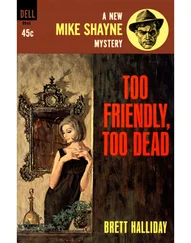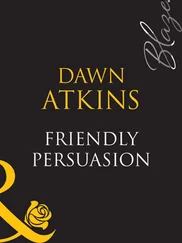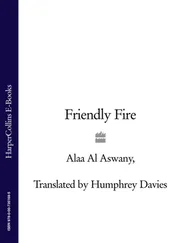Out of nowhere appears the wrinkled old groundskeeper, adorned with a sash, waving a huge branch. He grandly leads the Africans inside and instructs them to take seats at the three rows of tables. Who are these people? Daniela asks Sijjin Kuang, who with stately authority is assisting the old man in seating each guest in his proper place.
On Sunday nights, she tells the visitor, before departing for the new week of excavation, the members of the research team invite the tribal chiefs and heads of local clans to join in the farewell dinner, so they will feel they have a stake in the scientific work.
Sijjin Kuang seats the Israeli woman in the first row of tables, leaving empty places to her right and left for Yirmiyahu and herself. The cooks, in white toques, place ceramic pots on the tables and distribute pitchers of a yellowish drink. Yirmiyahu enters, his bald pate shiny and his clothing fresh, and sits down beside her and says, Europe becomes important to them even as they sense its growing alienation.
The old black man waves the branch, and the assembled rise to their feet. The scientists enter in a row, clad in black university gowns with sashes attached in the colors of their native countries' flags. Minus the North African paleontologist, the marchers are nine in number, led by the Tanzanian Seloha Abu, who assigns each member his place at the high table. And since the guests are very hungry and the food is piping hot, speeches are postponed till the meal's end and the eating begins, to be accompanied, in keeping with the British tradition that Dr. Kukiriza has brought with him from London, by small talk alone.
"Tell me," Daniela says suddenly to her brother-in-law in Hebrew, "you're sure you won't come back to Israel slightly delirious from all this?"
He puts down his fork.
"And who told you I'm coming back? You've been here for six days, and you still insist on not understanding where I stand. Nothing will draw me back to a country that has turned into a recycling plant."
"That's a novel definition."
"Here there are no ancient graves and no floor tiles from a destroyed synagogue; no museum with a fragment of a burnt Torah; no testimonies about pogroms and the Holocaust. There's no exile here, no Diaspora. There was no Golden Age here, no community that contributed to global culture. They don't fuss about assimilation or extinction, self-hatred or pride, uniqueness or chosenness; no old grandmas pop up suddenly aware of their identity. There's no orthodoxy here or secularism or self-indulgent religiosity, and most of all no nostalgia for anything at all. There's no struggle between tradition and revolution. No rebellion against the forefathers and no new interpretations. No one feels compelled to decide if he is a Jew or an Israeli or maybe a Canaanite, or if the state is more democratic or more Jewish, if there's hope for it or if it's done for. The people around me are free and clear of that whole exhausting and confusing tangle. But life goes on. I am seventy years old, Daniela, and I am permitted to let go."
And he takes up the fork and plunges it into the meat.
Daniela wants to strike back indignantly, but stops herself. The flow of his words suggests that even if he has never performed this monologue for others, he has doubtless muttered it many times to himself.
The old African sets fire to the big branch and waves it, and the Tanzanian team leader rises to deliver the traditional address. Yirmiyahu whispers to his sister-in-law that although the man speaks in the local vernacular, all the members know this speech and can understand the meaning of every sentence. He is speaking on a favorite topic: man's dominance over fire and his ability to understand it, and even Yirmiyahu is able to comprehend part of the speech and to fill in the rest:
Fire is conceived of as a living thing. It moves about incessantly, changes its shape and color, eats, makes noises, provides heat. Man can create it or extinguish it, can blow on it to revive it or blow on it to put it out. Fire is the only thing in the world that man can kill and then bring back to life. Most of what man creates or produces depends on fire, and most destruction and ruin are connected with fire. Fire is a friend that brings life, that cleanses and purifies, and it is also a terrifying foe. Perhaps in the knowledge of fire is a key to the knowledge of death.
Of all creatures in the world, only man is conscious of the phenomenon of death. It is strange, since all animals see death all around them, and some cause it every day. Nevertheless, recognition of death is unique to humans, and is expressed, for example, in the custom of burial, which first appeared about 100,000 years ago.
The consciousness of humans differs from that of the animals in two main ways, knowing fire and knowing death. There is a connection between these two knowledges, one gives rise to the other. Fire made man into the being who controls the world but also into the miserable human who knows that his death is inevitable.
The old African waves the burning branch during the entire speech.
1.
HE WAS CONVINCED he would wake up on his own, but a dream that refused to end kept him sleeping. Fortunately, he had arranged a wake-up phone call. While hunting for a warm undershirt he thinks how happy Moran would be to chase after wind in the middle of the night, but for a grandfather hounded all day by a great-grandfather, a nighttime adventure like this is a bit much. And yet, having recognized his obligation in broad daylight, he will not shirk it at night. His own father gives a lifetime guarantee for a homemade elevator and stands by it honorably even as he shudders in a wheelchair, and should he, this man's son, evade responsibility for defects appearing in an apartment tower during its first year? True, a sharp lawyer could juggle these windy complaints, tossing them from one party to the next till the complainant's spirit broke, but here we have a bereaved father, and there is strong fellowship between him and a bereaved uncle, so the uncle is taking the trouble on a stormy night to instill team spirit in all those responsible to determine who among them is the guilty party.
Tel Aviv calls itself the City that Never Rests. The epithet is more than just words, Ya'ari decides as he finds himself in a swirl of lights and traffic in the wee hours of a winter's night. Even in his youth he was never much of a night owl, and in recent years he has tried to convince Daniela to go to bed earlier. Tomorrow night, he knows, they won't hurry to get in bed. Neither will be able to fall asleep. There will be too much to tell and too much to hear. But he will not hint, even lightheartedly, at that "real desire" she promised at the airport. He knows he must prepare himself to be patient. For though she has been the traveler and he the abandoned one, she will still be angry about the separation, and anger, as it always does, will sabotage desire.
The rain has stopped, but on the street puddles glimmer in the headlights. Again he drives around the former Kings of Israel Square, now renamed for Rabin, to find waiting beside the dark window of the Book Worm the same vaguely defined individual, who has added to her attire of the previous morning only a red scarf, wrapped about her neck.
"Well," he teases her affectionately. "Now you can't complain that we overpaid you. Tonight we will all need your expertise. Let's just hope the wind will be sufficiently strong; it seems to be displaying symptoms of fatigue."
"Don't worry, Ya'ari." The expert smiles at him with her big bright eyes. "Even a weak wind will do. When it's trapped in a shaft, I can easily make it talk."
"Talk," he repeats, intrigued. Then he asks if tonight she might disclose her age.
Читать дальше












